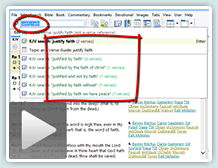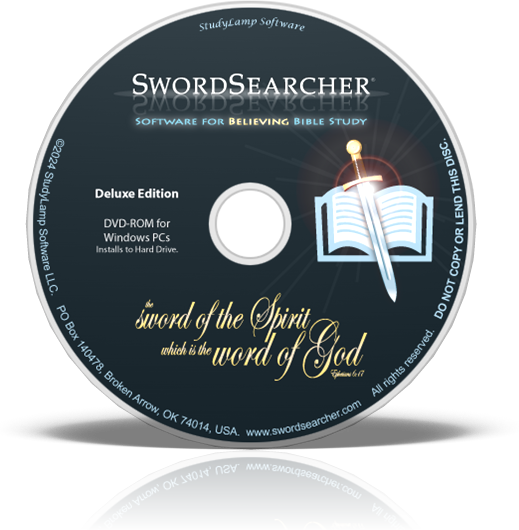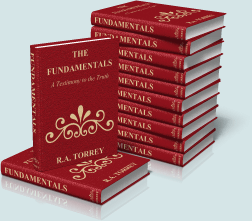A Biblical Method of Bible Study
"Search the scriptures; for in them ye think ye have eternal life: and they are they which testify of me." - John 5:39
"All scripture is given by inspiration of God, and is profitable for doctrine, for reproof, for correction, for instruction in righteousness: That the man of God may be perfect, throughly furnished unto all good works." - 2nd Timothy 3:16,17.
A biblical method of Bible study is suggested by the two words "search" and "profitable." Whatever is profitable is apt to cost labor. The worthless we can get without effort. Hence the strength of the phrase, "Search the Scriptures." It means to "look through and through." It is the word used in the Scripture, "The Spirit searcheth all things, yea, the deep things of God" (1Co 2:10). As God searches our hearts so let us search the Bible.
The Bible unsearched is a mine unworked, the difference between the Klondike years ago and the Klondike enriching its industrious owners today. To learn the Word of God requires diligent and persistent searching. A man who died in an English almshouse several years ago gave to his relatives an unproductive piece of land, so worthless that he did not have to pay taxes on it. The relatives searched it, and as a result they are today millionaires. The pauper was rich without knowing it, and he was ignorant of the fact because he did not search his possessions.
Every Christian with the Bible in hand is rich whether he knows it or not. Let him search and find hidden treasures. This search implies sight and light. There is need of spiritual discernment. "The natural man discerneth not the things of God." And hence the need of inspiration which comes from trusting the Holy Spirit as the Revealer of Truth. When Galileo turned his little telescope to the heavens, he found that he really had a new pair of eyes. He could now see the mountains of the moon, the satellites of Neptune, and the ring around Saturn. So we read the Bible in the light of the Bible, and as more light comes, better sight is imparted; while, on the other hand, as better sight is imparted, more light is revealed.
The Christian with spiritual discernment can afford to "search the Scriptures" with the Holy Spirit alone as his guide. Commentaries are good, but not good as substitutes for independent search. When Alexander the Great stood before Diogenes as he sat by his tub, the general asked the philosopher what he could do for him. The rather grim reply was, "Simply get out of my light." And any searcher has a right to say "Get out of my light" to every one whose shadow comes between him and the Truth.
Any method of searching is good, though some may be better than others. The "grasshopper method" by which we take a word or subject and jump from one place to another, collating the texts which have the word or subject in them, is not to be despised. God shook the world through Dwight L. Moody, who was fond of this method. I have learned to love what, for lack of a better word, I call the sectional method, by which one begins at a certain place and goes through paragraph, chapter or book, gathering and classifying every thought. It reminds one of Mr. Spurgeon's saying suggested by the worm-eaten Bible which he found on the table of a Scottish wayside inn. Holding it up to the light, he noticed only one hole through which the light shone. One worm, it seems, had begun at Genesis and eaten through to Revelation, and Spurgeon prayed, "Lord, make me a book-worm like that." Such a book-worm never turns into an earth-worm. It will have wings by and by.
But whatever be your method, do not fail to read the Bible by books. Read Genesis at a sitting. You can do it in less than three hours. Then take Exodus; then Leviticus, and so on through the whole library of sixty-six volumes. The astronomer should look at the heavens as a whole before he takes to his telescope. The botanist should look at the fields and gardens before he takes to his microscope. If you have not read the Scriptures, a book at a sitting, you may take it for granted that you do not know your Bible.
A study of words yields a rich harvest of knowledge and blessing.
Luther said that he studied the Bible as he gathered apples. First, he shook the whole tree, that the ripest might fall. Then he climbed the tree and shook each limb, and when he had shaken each limb, he shook each branch, and after each branch every twig, and then looked under each leaf. Let us search the Bible as a whole; shake the whole tree; read it as rapidly as you would any other book; then shake every limb, studying book after book. Then shake every branch, giving attention to the chapters when they do not break the sense. Then shake every twig by careful study of the paragraphs and sentences, and you will be rewarded, if you will look under every leaf, by searching the meaning of words.
Written by A. C. Dixon, Pastor of the Metropolitan Tabernacle Church (London, England). Excerpted from The Fundamentals: A Testimony to the Truth.
This is an excerpt from the SwordSearcher Deluxe Study Library.
Watch this:
Three Reasons to use SwordSearcher 
Discover how fast, convenient, and powerful software is compared to mere online study tools.


